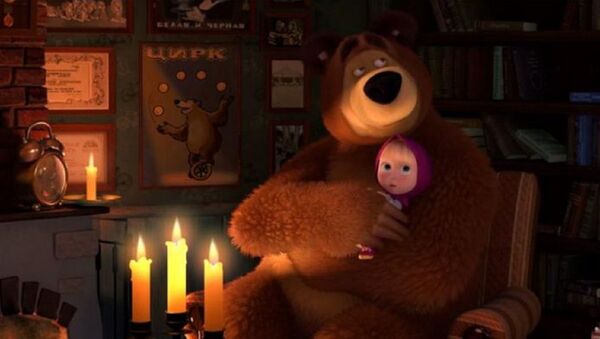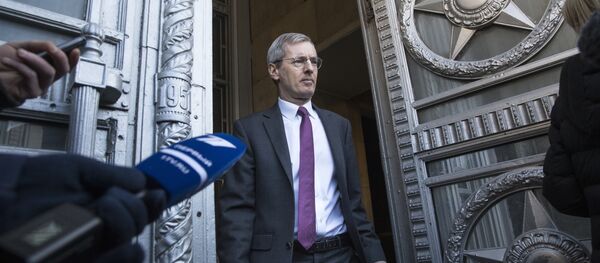The cartoon, which is based on the concept of Goldilocks and Three Bears – first penned by 19th century English writer Robert Southey – is centered around the escapades of a feisty and adventurous Russian girl Masha and her gentle giant friend the bear.
Produced by an independent Russian animation studio, the English language version of the cartoon now has 4.18 million subscribers on YouTube.
He said the beautifully presented cartoon was part of a campaign that was dangerous to Estonian national security. The article does raise questions however as to whether The Times has gone a step too far in spreading what many see as anti-Russian content. Sputnik spoke to Dr Tara McCormack from the University of Leicester for more insight on the issue.
Sputnik: What do you make of the allegations reported in The Times of this cartoon being Russian propaganda?
Tara McCormack: I think the allegation — it's hard really to make a serious response to this allegation because it just seems so utterly ridiculous — that a children's TV cartoon which as far as I'm aware is made entirely by an independent production company and actually has quite a following worldwide — is some kind of secret Putin propaganda;
I mean we're just getting into David Icke-style territory really. I think it's such a ludicrous territory.
Tara McCormack: Yes of course — it is a Russian production and states when they make films and cartoons, even for an international audience they will always reflect some level of national characteristic. I mean 'Paw Patrol' is a Canadian production; famous British TV programmes such as Bagpuss of course reflected national characteristics without trying — as it's natural when you make a film it will reflect some level of national characteristic.
But I mean the idea that this little girl Masha is 'putinesque' because she's feisty it's laughable really. But there is this slightly bizarre element where you end up saying well because it's made in Russia it's maybe evil Russian government propaganda, which is quite an unpleasant way of looking at things.
Sputnik: We've seen even Kremlin critics come out now and say that The Times has gone too far now. Isn't there a danger that we're now coming close to the fervour of anti-Semitism of Nazi Germany in the 1930s if we continue to view everything produced by Russia as propaganda?
Nevertheless, we are now at the stage where we can absolutely say anything about Russia and Russians — politics aside that we would balk at saying…you know we wouldn't describe Chinese productions in this way.
So I do think there's a level of racism and xenophobia really that are being allowed now when it comes to Russia.
But I have to say The Times is leading the way in this. The Times as far as I can see has mostly abandoned news reporting. It's becomes a cross between the Soviet Pravda and a sort of David Icke monthly.
Just a couple of weeks ago there was a ridiculous report from the Henry Jackson Society — which has more or less taken over news reporting in The Times — saying that one in every two Russian expats in London is a Kremlin spy; so beyond the bounds of reality. Frankly it's an absolute shame that what was once the paper of record is now National Enquirer-style lunacy.
You know, Masha and the Bear Putin Propaganda and every other Russian in London is a Kremlin spy. The claims are absolutely wild and I think it is a measure of how ridiculous the discussion about Russia has become that this passes without an outcry.
Views and opinions expressed in this article are those of Tara McCormack and do not necessarily reflect those of Sputnik.






